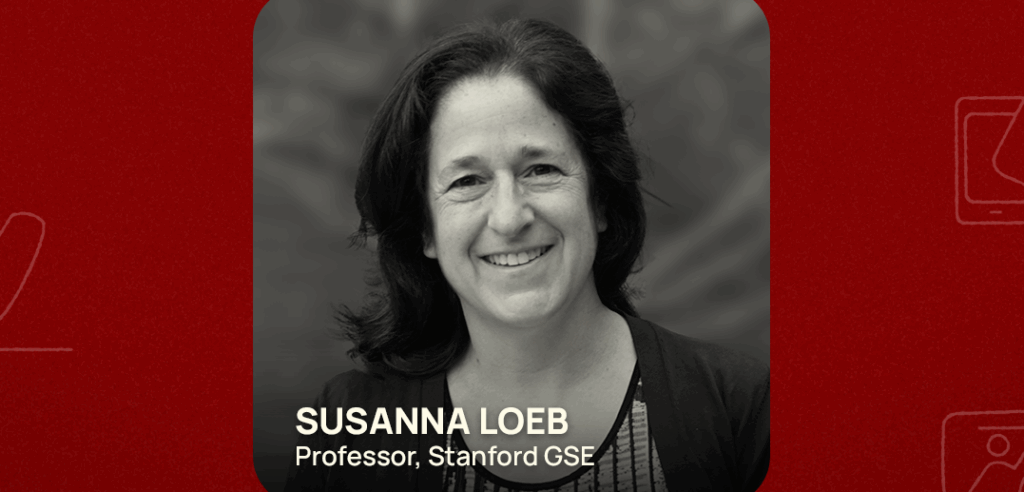Top Stories
Link to read


Reimagining education in the age of longevity ↗
In this episode of School’s In, Stanford Accelerator for Learning Faculty Affiliate Mitchell Stevens discusses ways to prepare young people for long lives of learning, work, and transitions.
Link to read


Becoming visible: centering families and caregivers in early childhood research and policy
Stanford's RAPID Survey Project provides essential insights that turn lived experiences into actionable data.
Link to read


Stanford course tackles gap between edtech research and real-world practice
Taught by Accelerator Faculty Affiliate Dora Demszky, Empowering Educators via Language Technology aims to connect edtech creators and teachers to create better learning tools.
Link to read


Digital twins reveal how math disabilities affect the brain ↗
Using AI to analyze brain scans of students solving math problems, Stanford Accelerator for Learning Faculty Affiliate Vinod Menon and co-authors offer the first-ever glimpse into the neural roots of math learning disabilities.
More stories
Link to read


Five things to do in virtual reality – and five to avoid ↗
A review of experimental research by Jeremy Bailenson, faculty affiliate of the Stanford Accelerator for Learning, reveals how VR is best used and why it’s struggled to become a megahit with consumers.
Link to read


Helping every child succeed: Scaling support that works ↗
In this episode of School’s In, SCALE Faculty Director Susanna Loeb discusses how to scale education research for the greatest impact on student learning.
Link to read


Assessing the Role of Intelligent Tutors in K-12 Education ↗
Faculty Affiliate Emma Brunskill and co-authors find that short-horizon data from edtech platforms can help predict student performance in the long term.
Link to read


Learning design: AI and machine learning for the adult learner ↗
In this episode of School’s In, Candace Thille, faculty director for the Stanford Accelerator for Learning's Adult and Workforce Learning initiative, discusses how to build on prior knowledge and target skills for adult learners, and the intersection of machine learning and human agency.
Link to read


Thriving from the start: Early childhood research ↗
In this episode of School’s In, Accelerator Faculty Director Philip Fisher discusses how early childhood research is influencing policy, and parental practices that nurture development in young children.
Link to read


AI helps math teachers build better “scaffolds”
Education researchers have evaluated the ability of large language models (LLMs) to help middle school math teachers structure tiered lessons to reach diverse skill levels — a strategy called scaffolding.
Link to read


In the age of AI, what makes us human?
In her inaugural book, Stanford Accelerator for Learning Executive Director Isabelle Hau explores the power of care and connection in learning.
Link to read


The future is already here: AI and education in 2025
The third Stanford AI+Education Summit brought together researchers, K-12 leaders, educators, and technologists to explore how AI is shaping teaching and learning.
Link to read


New pilot course teaches the history of California education ↗
A new course for teacher candidates, led by Stanford Accelerator for Learning faculty affiliate Michael Hines, takes a journey through the state's legacy of learning.